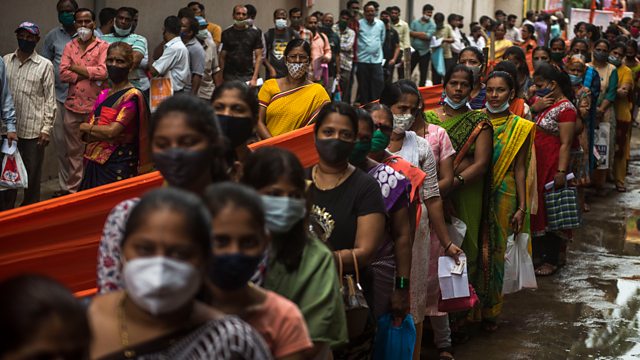Coronavirus: How will the Covid-19 pandemic end?
A discussion between scientists suggests that it may be more realistic to think about there being zero deaths, rather than zero cases.
It's 18 months since the WHO declared the Covid-19 pandemic and many are wondering if or when it will ever end. In May 2021, reported cases of Covid-19 were declining across the US and in parts of Europe as the numbers of vaccinations rose, and that triggered an easing of social and travel restrictions and cautious business reopenings. However, recent weeks have seen cases rising again, studies seem to show a declining effectiveness of the vaccine over time and it's possible that a new variant is already circulating.
Professor Salim Abdool Karim - a clinical infectious disease epidemiologist and a Member of the African Task Force on Coronavirus; Dr Natalia Freund a leading immunologist at Sackler School of Medicine, Tel Aviv University; Adam Finn, professor of paediatrics at the Bristol Children's Vaccine Centre, University of Bristol, and a member of the Joint Committee on Vaccination and Immunisation that advises UK health departments on immunisation, discuss whether we can get to a point where the pandemic will end, or if we will have to learn to live with the virus. Professor Karim notes that as long as the virus is present in animals and can be transmitted by them, it will always be present, and Dr Natalia Freund points to the need for high levels of vaccination, to reduce the number of potential hosts.
"When the majority is vaccinated, this is when we will limit the number of hosts, the number of people that the virus can infect and the number of new variants - and then we really will be able to control this pandemic." (Dr Natalia Freund a leading immunologist at Sackler School of Medicine, Tel Aviv University)
Duration:
This clip is from
More clips from The Evidence
-
![]()
How our gut microbes could affect how we experience stress
Duration: 04:07
-
![]()
The people dying of Covid who don't believe the virus exists
Duration: 03:58
-
![]()
Covid vaccine: Does it matter if antibody levels fall over time?
Duration: 04:18
-
![]()
How Covid-19 can cause a loss of the brain's grey matter
Duration: 02:08






